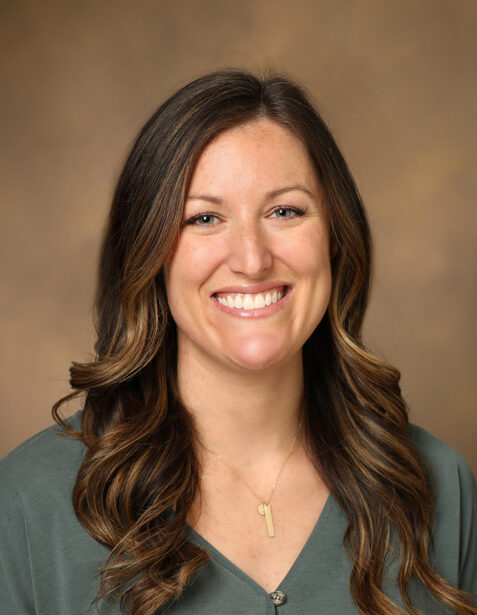Women helping women
August 6, 2024
Leslie Sheffield’s life changed on her lunch break. The primary care nurse practitioner had a CT scan in the middle of her shift, thinking she had a kidney stone or urinary tract infection. It turned out to be a “very large” tumor on her bladder.
“I automatically started researching and trying to figure out how to increase my chances for survival,” said Sheffield, who was diagnosed with stage 4 bladder cancer on March 30, 2023. “The urologist here in Oxford, Mississippi, told me that if his wife was diagnosed with bladder cancer, there’d be no question about it — he would immediately call Vanderbilt.”
Sheffield’s Texas-based family hoped she’d receive treatment closer to them so they could support her family of six, but she and her husband were unsure.
“We prayed a lot about it, and I knew that the first visit with Vanderbilt Urology would tell me everything I needed to know,” she said. “I immediately had a sense of peace and knew I was in the right place. Everyone was very kind, comforting and gave me a very clear medical treatment path.”
The staff for her surgeon, Sam S. Chang, MD, MBA, told Sheffield about Bree Duncan, the Gail Kraemer Care Coordinator for Female Bladder Cancer Patients, who was on maternity leave at the time.

“When Bree returned to work, she reached out to me, and from the first conversation I knew she was going to be my support person,” Sheffield said. “When I was in the doctor’s office, I felt overwhelmed with treatment options and facts, then I’d get home and start thinking about questions I forgot to ask and angles I forgot to consider. Bree was the person I always knew I could call when I was stressed out, and she would point me in the right direction and give me encouragement and support.”
Like Kraemer, Sheffield found the majority of the online support around bladder cancer to be focused on men.
“There are a lot of personal female questions that come to mind when you’re talking about bladder surgery, and sometimes you don’t think about them until you’re home looking at your spouse,” she said. “To be able to pick up the phone and ask what my daily life as a female would look like if I had a certain surgery was so helpful.”
The biggest decision Sheffield struggled with was deciding between a urostomy, which creates a way for urine to leave the body through an opening in the abdominal wall, and the Indiana pouch, an internal reservoir that holds the urine until you drain it off via catheter.
“I’m a 39-year-old mother of four, and if I want to go for a run or chase my children outside, I want to do that without having a bag,” she said. “Talking through it with Bree made it more clear what treatment plan I should choose based on how active I want to be.”
In August 2023, Sheffield underwent surgery in which doctors performed a total hysterectomy and removed her bladder and 46 lymph nodes. During her recovery phase, she continued to rely on Duncan for support.
“I had a lot of questions about whether I was recovering correctly, how to catheterize myself and how to take care of my body,” she said. “She was part of a lot of my follow-up visits and acted as a great liaison between myself and the health care team. I never felt like I couldn’t get a question answered.”
Sheffield has not returned to work after her diagnosis and has concentrated on healing, living a healthy lifestyle, spending time with her children and focusing on living out her life goals.
“Prior to my diagnosis, if someone would’ve asked what my life goals were, my answer would’ve been more along the lines of having a successful career, financial comfort and supporting a big family,” she said. “Now it’s more about quality of life. I’m more interested in enjoying life with my family. I want to live — to truly live. My goal is to be 100% in tune to living life to the fullest, making an impact on others and raising my children to know just how much I love them, because tomorrow isn’t promised.”
Sheffield’s last few scans have been clean. Though she doesn’t need as much support following her surgery, she and Duncan still check in regularly.
“Sometimes I wonder how other women go through this without a Bree for support,” she said. “She was by far one of the biggest blessings in such a scary and challenging situation.”
